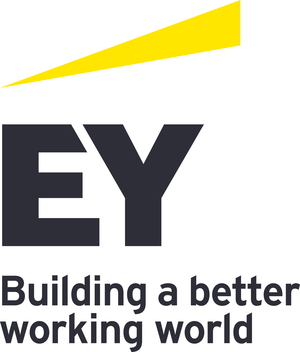EY research: Artificial intelligence investments set to remain strong in 2025, but senior leaders recognize emerging risks
Second EY AI Pulse Survey finds increasingly positive returns on artificial intelligence investments despite growing challenges across data infrastructure, workforce fatigue, governance and energy consumption
NEW YORK, Dec. 10, 2024 /PRNewswire/ -- Surging artificial intelligence (AI) spending by business leaders is set to continue into 2025 as a near unanimous 97% of senior business leaders whose organization is investing in AI report positive ROI from their AI investments, according to new data from Ernst & Young LLP (EY US). As a result, leaders remain bullish on their overall investments in AI with 34% of companies who are already investing in AI planning to invest $10 million or more next year, a directional increase from 30% six months ago in the first wave, but many report struggling to keep pace with rapid AI advancements.
The new EY AI Pulse Survey is the second in a series that asks 500 US senior business leaders across industries about their company's AI investment levels, the impact on their business and the challenges integrating the technology. As debate swirls around an AI bubble, the survey finds growing demand signals with the recognition of challenges ahead.
"Generative AI's 'terrible twos' have been both volatile and shown incredible promise," said Whitt Butler, EY Americas Consulting Vice Chair. "Leaders are banking on AI as the future but our research uncovered challenges like data infrastructure, which are holding back adoption. Leaders must put emerging and evolving risks like data and change management at the top of their AI transformation agenda to maintain momentum and realize adoption."
The ROI of AI is increasing but data debt is mounting
The survey finds senior business leaders at organizations that commit 5% or more of their total budget toward AI investments continue to see higher rates of positive returns than those spending less than 5%. And their returns are on the rise compared with six months ago, with leaders who invest 5% or more of their total budget in AI reporting increased positive ROI across:
- Operational efficiencies (84%, up from 77%)
- Employee productivity (83%, up from 76%)
- Technology updates (82%, up from 74%)
- Cybersecurity (81%, up from 74%)
- Competitive advantages (80%, up from 73%)
- Product innovation (78%, up from 71%).
Despite the positive gains, companies' data infrastructure is becoming a bottleneck. 83% of senior business leaders said their organization's AI adoption would be faster if they had stronger data infrastructure in place, and two-thirds (67%) admit their lack of infrastructure is actively holding back AI adoption.
"Data infrastructure and management are table stakes for maximizing the potential of AI, but too many organizations are falling behind," said Dan Diasio, EY Global Artificial Intelligence Consulting Leader. "Companies urgently need to build knowledge assets, capturing their unique expertise and processes, which will prove especially important as agentic AI models come online and revolutionize how we work."
AI's 2025 growing pains
The latest EY US research explored other potential roadblocks that may derail organizations' investments in AI. Heading into year three of generative AI–driven transformation, leaders will need to prioritize addressing limitations across governance, human capital and increased energy consumption.
AI is about more than just technology, it's about trust. The survey reveals a surge in leaders prioritizing AI governance and taking action as the technology permeates organizations. Six in 10 (61%) senior business leaders whose organization is investing in AI reported growing interest in responsible AI practices over the past year, up from 53% six months ago, and half (51%) said their organization would put an even greater focus on the risks AI creates in the coming year. Senior business leaders whose organization is investing in AI also recognize the importance of AI training with 59% planning to increase the time their organization will spend training employees on the responsible use of AI over the next year, up from 49% six months ago.
AI fatigue is very real for employees and leaders. Companies are facing a growing wave of exhaustion as their workforce struggles to keep up with the rapid pace of change. Half (50%) of senior business leaders report declining company-wide enthusiasm for AI integration/adoption, while a similar level (54%) said they feel they are failing as a leader amid AI's rapid growth. This top-to-bottom challenge highlights the need to bridge the confidence gap and empower both leaders and employees to navigate the evolving AI landscape.
AI's growing energy appetite is causing concern. There's growing awareness of the energy consumed by AI, both in training models and daily use. In fact, about half (49%) of senior business leaders expect cloud computing to increase their organization's energy consumption in the next 12 months. Many expressed concern about the downsides of increased AI usage, specifically the cost implications (69%), the negative impact on their sustainability and emissions goals (64%), and the reliability of their energy supply due to increased AI use (62%).
"Leaders are waking up to the energy challenges inherent in scaling AI," said Steve Wanner, EY Americas Industrials & Energy Leader. "To create innovative solutions that enable energy efficient and sustainable AI growth, companies must collaborate across the value chain, connecting the dots from energy providers to the end-use AI customer."
Methodology
EY US commissioned a third-party vendor to conduct the Second Wave of the EY AI Pulse Survey. The online survey was conducted among n=500 senior business leaders defined as US employed decision-makers (SVP+) in the health; life sciences; energy; technology, media and telecommunications (TMT); government and public sector; consumer products and retail; advanced manufacturing and mobility (AMM); financial services; private equity; and real estate, hospitality and construction (RHC) industries (i.e., n=50 per industry). It was fielded between September 24 and October 4, 2024. The margin of error (MOE) for the total sample is +/- 4 percentage points at the 95% confidence interval.
The First Wave of the EY AI Pulse Survey was fielded between April 29 and May 6, 2024. For data integrity and comparison purposes, tracking questions and audience definitions remained unchanged wave over wave. The MOE for the total sample is +/- 4 percentage points at the 95% confidence interval.
About EY
EY is building a better working world by creating new value for clients, people, society and the planet, while building trust in capital markets.
Enabled by data, AI and advanced technology, EY teams help clients shape the future with confidence and develop answers for the most pressing issues of today and tomorrow.
EY teams work across a full spectrum of services in assurance, consulting, tax, strategy and transactions. Fueled by sector insights, a globally connected, multidisciplinary network and diverse ecosystem partners, EY teams can provide services in more than 150 countries and territories.
All in to shape the future with confidence.
EY refers to the global organization, and may refer to one or more, of the member firms of Ernst & Young Global Limited, each of which is a separate legal entity. Ernst & Young Global Limited, a UK company limited by guarantee, does not provide services to clients. Information about how EY collects and uses personal data and a description of the rights individuals have under data protection legislation are available via ey.com/privacy. EY member firms do not practice law where prohibited by local laws. For more information about our organization, please visit ey.com.
Ernst & Young LLP is a client-serving member firm of Ernst & Young Global Limited operating in the US.
SOURCE EY

WANT YOUR COMPANY'S NEWS FEATURED ON PRNEWSWIRE.COM?
Newsrooms &
Influencers
Digital Media
Outlets
Journalists
Opted In






Share this article